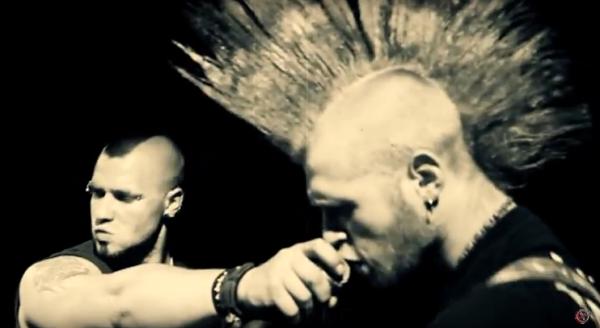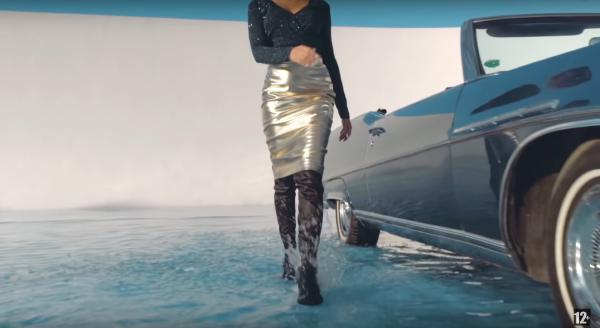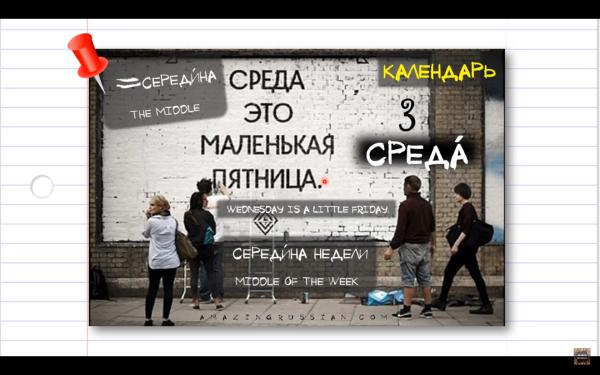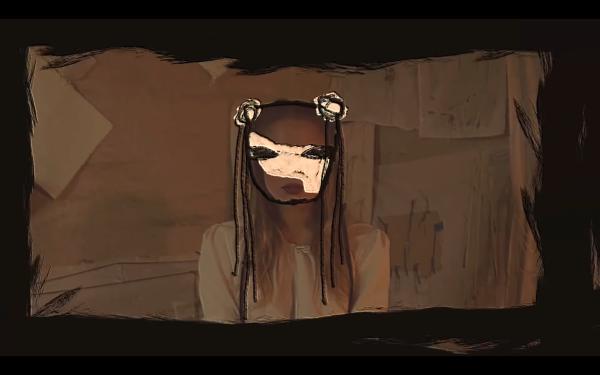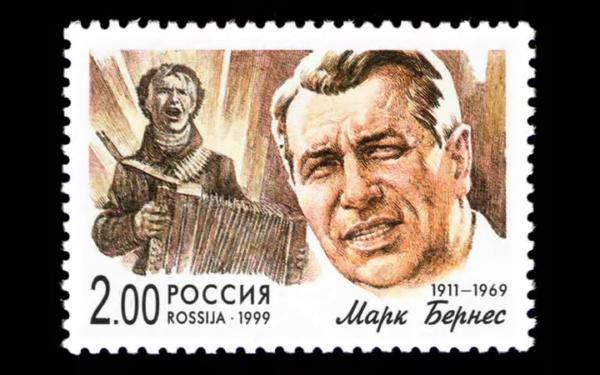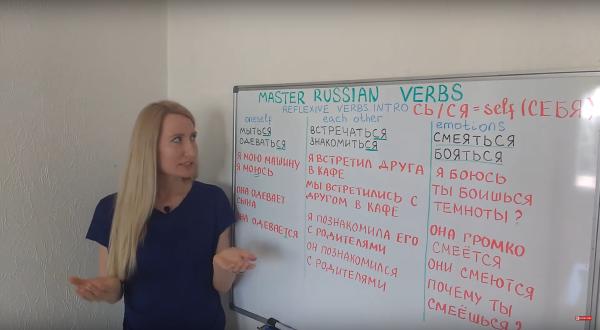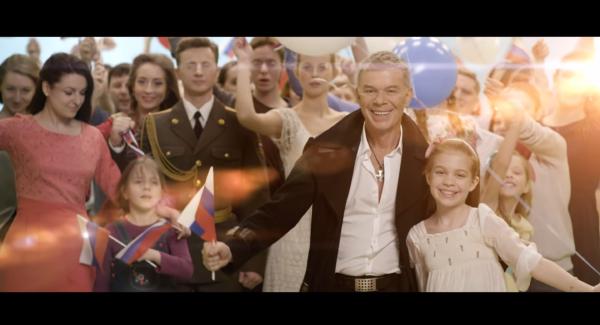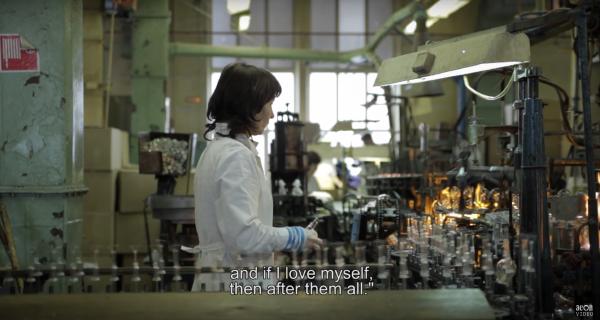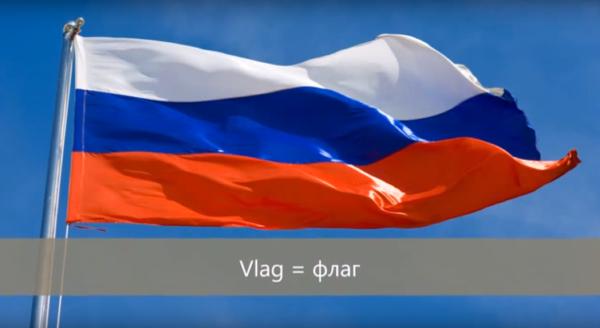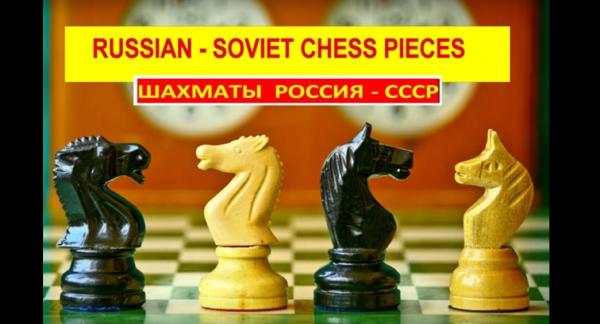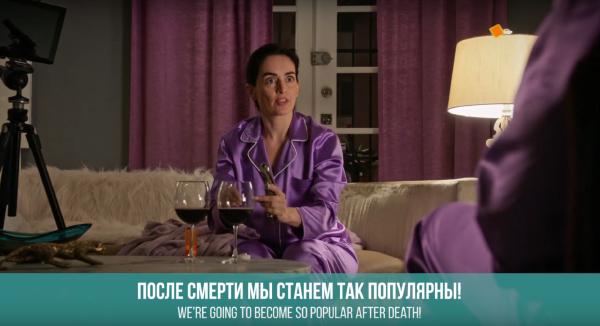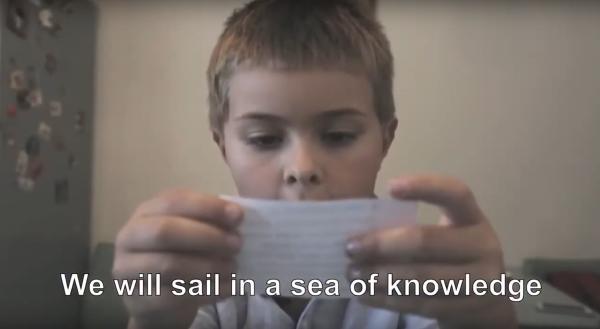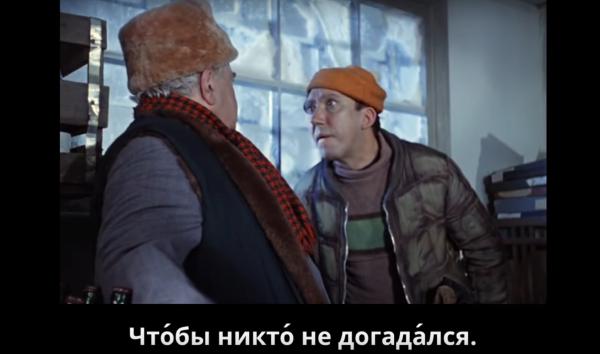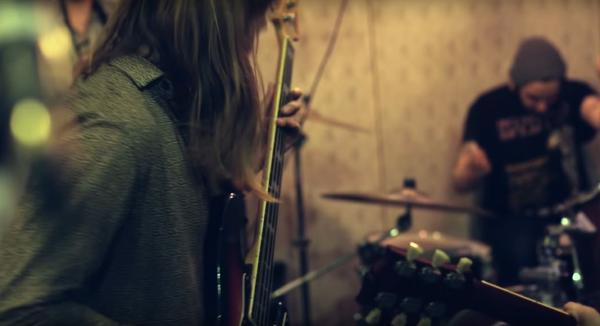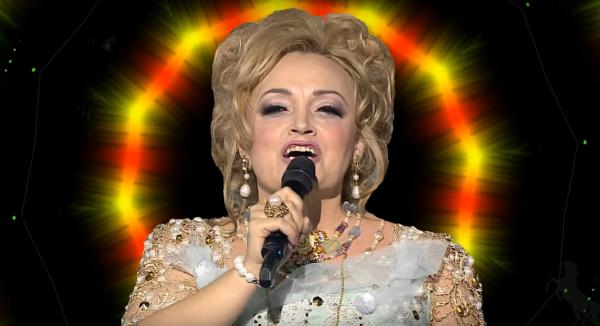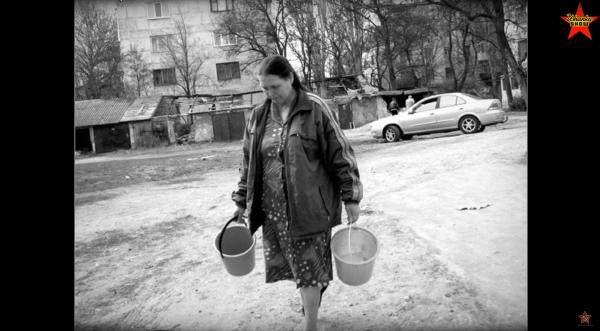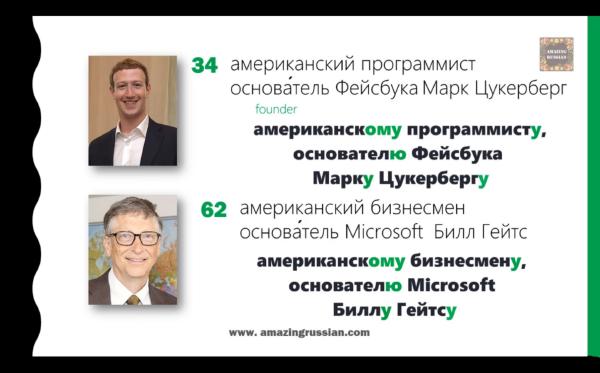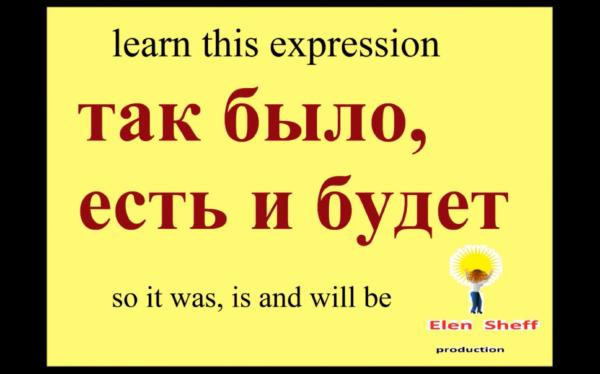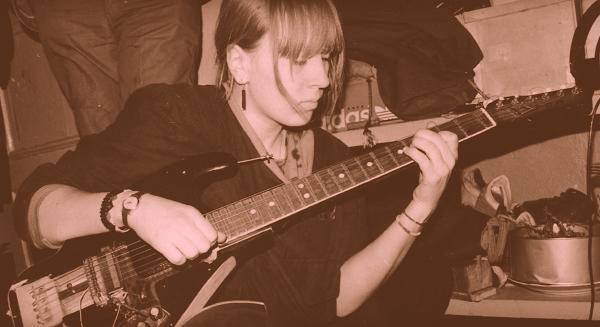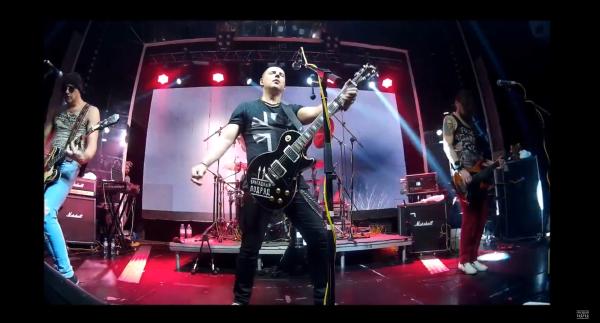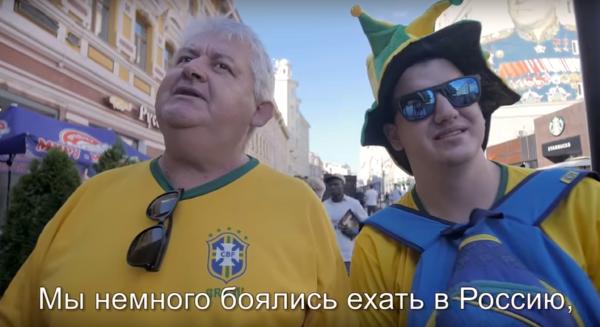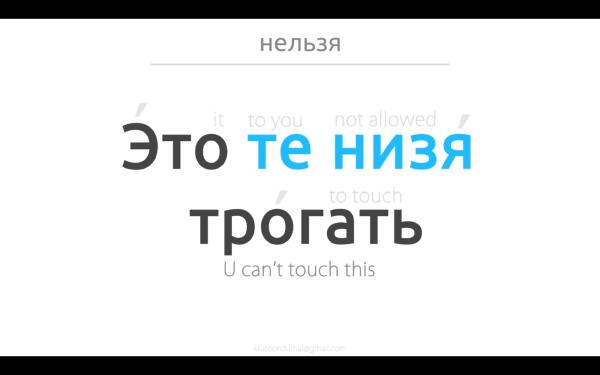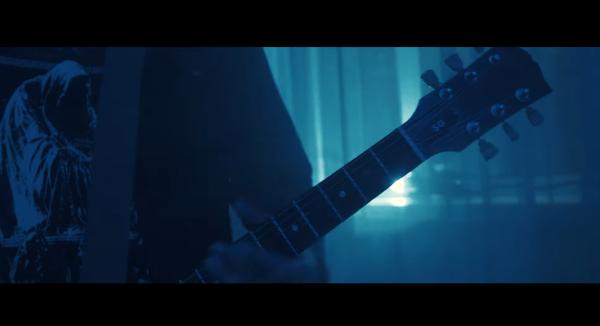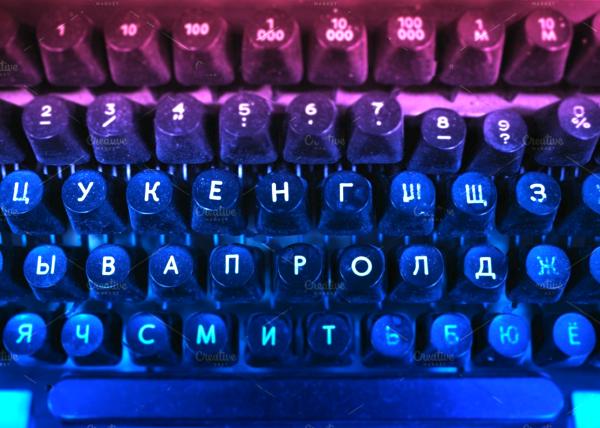Punk is often socially engaged, but the nature of that engagement can vary. Индульгенция (Indulgencia) might step on the toes of many punks with Феминистка (Feminist, 2014). Their stance comes from values unusual in the genre, namely Christian ones – and that might be the most punk thing of all.
A well-thought-out composition, but Hanna’s mind wasn’t on it. Hanna (or Ханна) has lost her голова (head), turning it into голову. To a ты (you), the самая сильная слабость, strongest weakness, and самая дикая сладость, wildest sweetness. Then this came out, and it all fit perfectly.
What kind of times do we live in? It’s a question one might ask these days. To get an answer in Russian (or to distract yourself from the times), let’s start by learning the names of the months and days. Here they are gathered together, with a bonus of some etymology and grammar thrown in.
A trio from Minsk, Belarus. Where lately a lot of bad news has been coming from – and music that also doesn’t always sound cheerful. Still, Molchat Doma (Молчат Дома, Silent Houses) is worth a listen. Especially if you’re a fan of new or 80’s wave (now called postpunk or coldwave), and if you could appreciate
Ploho.
A tattooed hand or neck, no one is shocked or surprised anymore. Tattoos have become normal. Maybe even boring. It’s a bit different with the face tattoo. Very in your face. Or maybe not (anymore)? About the circles (Russian, of course) where the face tattoo has become normal and about the people who live with it every day.
From the film
Два бойца (Two Soldiers, 1943).
Mark Bernes (1911-1969) with a guitar, between two battles.
Тёмная ночь, Dark night. Только пули свистят по степи, Only bullets whistle across the steppe. Только ветер гудит в проводах, Only the wind hums through the wires, Тускло звезды мерцают, Dimly the stars flicker.
Photo: Gosha Bergal
Country
Photographer, model, and author, with a past that didn’t immediately suggest such a career. A portrait of Gosha Bergal (Гоша Бергал) on
Zen Yandex, and more recently in
Paws for thought: a heartwarming photo diary about a rescue dog and his owner (The Calvert Journal, 2020). About how a knee injury and a dog led to new paths.
Verbs that relate to oneself are called
reflexive verbs, in English “reflexive verbs,” and in Russian возвратные глаголы. Reflexive verbs often involve a “zich” (oneself) in Dutch; in Russian, this “self” is represented by the suffix -ся at the end of the verb. For example, мыть means to wash, and мыться means to wash oneself (or yourself).
Oleg Gazmanov (= Олег Газманов, 1951) loves Russia and doesn’t hide it. This makes him both friends and enemies, but that won’t stop Oleg Gazmanov. Чем выше давление, the higher the pressure, тем крепче бетон, the stronger the concrete.
Short documentary film (11 m) from 2013 about love love love, or Любовь x 3. Love. Love. Love. is about love in all stages of life, from a female perspective. ‘A Sundance-winning short on the many shapes of Russian affection’ (more on
IMDb), made with love.
Зелёная лампа (The Green Lamp) is a short story from 1930 by Aleksandr Grin (1880-1932), the surname being an abbreviation. Regarding Aleksandr Grinevski (Russian: Александр Гриневский), Wikipedia offers a real recommendation: “His stories mainly revolve around the sea, adventures, and love.”
When it comes to
Monetochka (translated as Little Coin), the conversation quickly turns to her voice. Elizaveta Gyrdymova’s (Yekaterinburg, 1988) voice is on the higher side. Not everyone is fond of it, while others love it.
Meet Monetochka, the popstar fast becoming the face of young Russia (Russia Beyond, 2018).
Russian reggae? Yes, it exists. Some might already know this (or still) thanks to
Nina Hagen (lyrics:
In the Soviet Union, we celebrate reunion), but for many, this may come as a surprise. Reggae is often associated with sunshine and summer, and Russia is not Jamaica.
How Difficult Is Russian?
Language
A frequently asked question that’s not so easy to answer. There are certainly degrees of difficulty (see
How long it takes to learn Russian; more at the bottom), but what’s a breeze for one person can be a challenge for another. Some can run a marathon with ease, while others struggle to bike even half the distance.
In
Chess in Russia Is Like Baseball in America (Big Think, 2011, 2 m),
Anatoli Karpov (1951) describes the status and position of chess in Russia. “Chess became a national game,” he says. “Like you have here in America, you have baseball. And so, Russia has chess.”
Learn Russian with Films (1)
Language
With Russian films, you can learn the language and practice listening while lounging on the couch with chips and soda (just to paint a scenario). Learning becomes enjoyable, and watching films becomes productive—almost the perfect combination.
September 1st: Knowledge Day
Country
A Russian may not see it as a holiday, but September 1st is certainly a special date. On this День Знаний (Day of Knowledge, since 1984), knowledge is honored and celebrated—but of course, knowledge is not gained easily. So, September 1st is also the day when Russian children return to school (or go for the first time). Accompanied by festivities, but once the первый звонок (first bell) rings, freedom and vacation are truly over.
The letter ы
Language
It looks like two letters but has an indescribable sound. The 29th letter of the Russian alphabet is quite unique and often causes problems with pronunciation. We are talking about the letter ы, a sound not found in many other languages (except perhaps Turkish). As such, it takes some effort to pronounce it correctly.
Казускома 4x
Music
Good music in the spectrum where Казускома (Kazuscoma) operates is not easy to find in Russian. This trio from Moscow is a discovery worth sharing with great pleasure. Call it hard rock, blues rock, seventies, or stoner—this is rock that doesn’t care about names. Denim jackets and long hair, Flying V (or Gibson SG) guitars, and Marshall amps make the party complete.
Надежда Кадышева (1959), a cross between Dolly Parton and the Zangeres zonder Naam. See that photo on Wikipedia,
English or
Russian; more bio and portrait on
24 СМИ and
Узнай всё. She hails from
Tatarstan or
Tatarstan, and was lucky enough to
pose for a picture with Putin. Here, she sings about nights, likely with someone else.
Russian Superstitions
Country
Don’t whistle in the house. Sit down before embarking on a journey. Look in the mirror when you have to return home because you’ve forgotten something. Just a few random rules to bring good fortune or ward off misfortune. Russia has a whole arsenal of such beliefs.
Third Case: Dative
Language
The
dative case in Russian is called дательный падеж. The name itself gives you a clue when to use it. In дательный, you find дать, which means “to give” (also давать—see
here for conjugations). This originates from Latin, where dare means “to give” and datum means “given.” In Russian, when something is given, it’s done in the dative case, just like in many other languages.
To Be or Not to Be
Language
Just like with
the verb “to have”, there’s something odd about the verb “to be” in Russian. It does exist—it’s called быть—but it often goes missing in sentences, unless you’re speaking in the past or future tense. In the present tense, it’s frequently omitted.
Yanka Dyagileva
Music
Yanka Dyagileva (Янка Дягилева), also known simply as Yanka, originally Яна and musically associated with Янка и Великие Октябри (“Yanka and the Great Octobers”), was born (in Novosibirsk) in 1966 and died (in 1991) at the age of 24. Allegedly by her own hand, though the official version states утопление в результате несчастного случая – drowning as a result of an accident.
After some introductory skirmishes, this story opens with a drum roll in the very first sentence. Twenty brave boys hurry off to war (двадцать бравых ребят на войну спешат), and you’re right there with them. Brief description:
prikaz on their chest, and before that, a machine gun (а в груди у них приказ на груди автомат).
As many non-Russians as there are in the world, there are just as many stereotypes about the Russians. They drink vodka like water and survive on pickles and beetroot soup. All women over fifty look like farmers or grandmothers, and men over fifty don’t exist. Oh yes. Russians love
Adidas, Russians
don’t smile, and Russia is
impossible to understand, and so on. More stereotypes here, and there’s much more to come.
Russian Slang
Language
A definition of slang is hard to pin down. But why try when others have already done it? According to
Wikipedia, slang refers to “registers of language usage that are either reserved for a social group or considered ‘vulgar,’ meaning substandard language.”
Supruga (Супруга) 3x
Music
Artyom Tyganov, Dmitriy Avargin, Ksenia Kundenko, and Pavel Molov – a quartet from Samara (from the Dark Zhiguli Region). Like
WLVS, also musically in the same regions. But Supruga (usually) does it with a female singer, though you might think otherwise if you just listen and don’t watch. Супруга = wife, in the sense of spouse (see
Reverso). Must be a stormy marriage.
Russian Keyboard
Language
Typing Russian letters and characters isn’t easy at first, but it’s definitely worth the effort. It opens up a whole new world—or at least a lot of the internet. It’s also necessary if you want to do anything in Russian.
Your first goal is going to be to get Russian on your computer (College Russian, 2018, 7 m, with more tips to find your way online).


